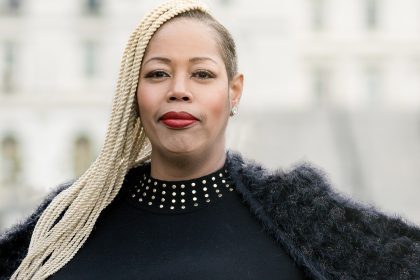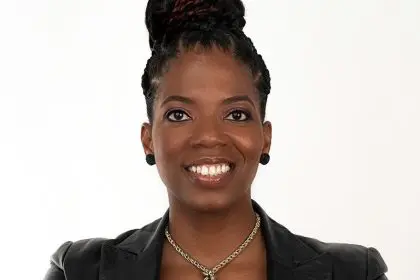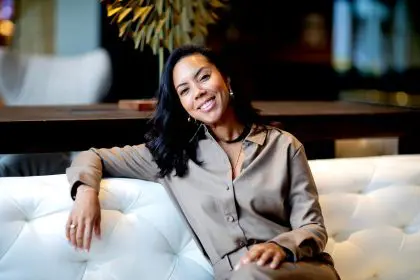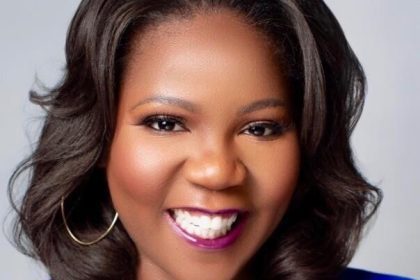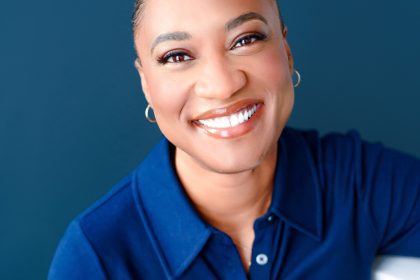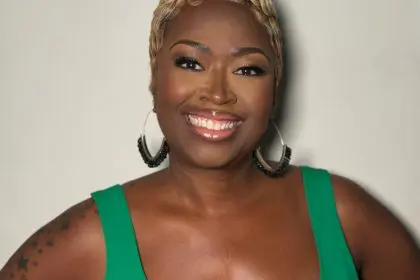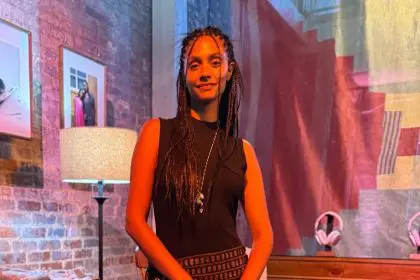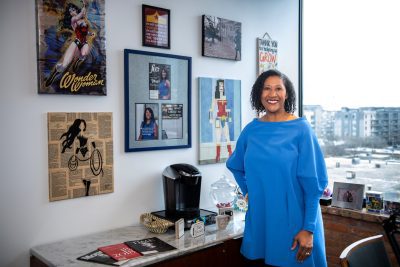Judge Glenda Hatchett has built an extraordinary legacy of breaking barriers and creating pathways for others. As Georgia’s first Black Chief Judge of a State Court and a pioneering figure in corporate America, she has consistently turned personal challenges into platforms for change. In an exclusive interview with rolling out, Hatchett discusses her new “Dare to Take Charge” 2025 planner, an extension of her mission to empower others to live purposefully.
What inspired you to create the planner and how do you see daily planning as a tool for living with intention?
I did it as a follow up to the book that I wrote many years ago, “Dare to Take Charge” how to live your life on purpose, and from time to time people would say they need a workbook, wish I would follow up, need Volume 2, and I thought, why not do it in the format of a calendar, so that there could be something that we think about and be very intentional day by day, and we have to not look back on last year or the year before, or our lives, for that matter, and think, well, why didn’t I get this done?
What this is planning to do is be a trigger to say, okay, we’re going to be very intentional about our goals for 2025, and then we’re going to really, as you look through the calendar, you’ll see there are places that you can write about, what your plan is, and not wait until midyear or the end of the year, and say, “Oh, I wish I had done”, and that’s not to say that you’re going to get everything done this year, but at least you are using these building blocks, and it’s like children’s Legos, we take this piece and we take this piece, and we put it together until we have a very, very firm foundation. At the end of this planner you will also see a bridge over into 2026, so that you can then start thinking ahead and not waiting for New Year’s resolutions on January of 2026, but daring you so, when you were a kid, people would say, I dare you, I dare you! I double dog, dare you? Well, that’s what I’m doing, I’m not just daring others, I’m daring myself on this journey.
What superpowers have helped shape your journey and create impact in the world?
I am old enough to remember when the world didn’t expect very much of little colored girls, and part of my superpower frankly, is derived from what my father poured into me. My father was, and will be throughout all eternity, my hero, even though he died suddenly little over 30 years ago, and what he told me is that I could be anything. I could be anything in the world, and I believe that, and that is so etched in my soul and my spirit that I really had to work for it, and that being a little colored girl, having been born and raised in the deep South, where, literally, people did not expect much of me, was that superpower that was in me, like I’m going to do this, and I attribute so much of that to my father, and how much he poured into me.
I didn’t come from a family with money, we didn’t, but I will tell you, we were rich in ways that you cannot ever measure, and my mother was this incredible spirit of energy and talent, and she was beautiful and just always doing for other people, and so I learned from my parents that you had to lift as you climb. I mean that was the challenge, that that it’s not my blessings, and my dad used to say this to me, the blessings are not to come through you for you to hoard, but rather blessings are coming to you to flow through you, to bless others, and that’s how I’ve tried to live my life, intentionally, on purpose, that it’s not just enough for me to be okay.
If there are others around me who can benefit, and I can lift up and encourage, and so I think that’s where my superpowers come from, from a community and neighborhood and church and school teachers who loved me and poured into me and encouraged me, and for that I am enormously grateful, and so it is my responsibility. I’m just gonna bottom line this, that if you have power, and you don’t use it for the good of others, then you don’t deserve to have it. You do not deserve to have it.
Why is it so important to share experiences like the water fountain incident in this moment of our history?
Because we have to learn from our history, and I don’t believe, that black history is just for February, nor is black history just for black people, that it is a national history, it is a worldwide history, and if we aren’t giving voice to these experiences, and if we aren’t sharing them with new generations, then how will they understand? And so it does seem strange that I could write my name and spell my name, but that I could spell and be colored, because I was not even old enough to go to school when that incident happened, but I share it as instructive.
I did get a chance to share on Instagram, the whole story of my grandmother picking me up, she was yelling at me, and I didn’t understand that, but with adult eyes. What I understand is that she was so afraid because the reality is, I could have been taken out that back door in that Sears Roebuck store in a small town in South Carolina that day, never to be seen again, never to be seen again, and I share that story because I was a child, and I was curious. I was curious as to whether the white water tasted differently, and so I went to taste it.
These two boys were enraged when they literally not just knocked me, threw me down onto the ground off of those steps that day, but those are the scars, not necessarily the physical scars that we carry, but the scars that we carry that must be then rewoven in our souls. Those are scars that you take, and you reweave them into our souls to make us stronger, to make us more resilient to make us more purposeful, and what we have to do, and why we can’t give up.
Why do you feel mentorship and tough love are essential for young people?
Because that is the way they grow, we can do a couple of things, we can mentor and love, and sometimes that mentoring requires tough love. People who watch me and continue to watch me on television over the years know I come down off the bench, sometimes it’s a hug, sometimes it’s like, look, you come back in here, there’s going to be a problem, because my sons, who are adults now, will say that I don’t forget anything.
My court reporter would laugh in my courtroom back in Atlanta because I could recite, almost verbatim, what someone had just said, even when they’ve been in my courtroom a month ago, and she would read it back, and it kind of got to be a standing joke that I could remember, and I’d say, listen. If you come back in here, don’t plan to go home. I’m giving you another chance, because I want to see you do well, but the whole thing about mentoring is critically important if we are going to have succession, if we’re going to have powerful succession, if we’re going to have superpowers in succession of people who must come behind me.
Quick story, I was at Emory University in Law School, it’s interesting I’ve rarely told this story, I’ll make it brief, and I was misdiagnosed with Hodgkin’s disease, and thankfully it was a misdiagnosis, and I ended up being very sick for a while with infectious mononucleosis, but at least I wasn’t terminally ill, and I went to this visiting black Woman Professor, who was only teaching a one hour course, and she was there, and I went to talk to her, and I had known her in the community.
And I said, I’m trying to decide whether I should just drop out for this semester, but I have to sit out for a whole year to come back, or if I should just push ahead, and she told me to leave her office, and she said I didn’t have anyone to help me, so don’t expect any help from me, and she literally told me to get up and leave, and I’m gonna tell you, when I left that door that day, I promised God, but if I were ever in a situation where I could help somebody, I was gonna do it. Now, I think I would have done that anyway, because I think that’s just who I am, that’s kind of ingrained in me, particularly with the parents that I had and the family I had, but for her to say that to me, there were so few black students, there were so few black women students, she was the black woman on the faculty.
For her not to at least be empathetic because I was sick, and I was working a full time job, I was Assistant Dean for the women in the undergraduate school and going to law school full time, I had my plate full. She had nothing encouraging to say, except to leave her office. Now I have a friend, very powerful woman, who is a powerful white woman, and she’s been woke forever, and she doesn’t know this story, but she knows of other stories, and she says, “You know, Glenda, there is a special place in hell for women who don’t help other women”. I don’t know that that’s true, what I do know is that if you’re in a position to help, and you don’t help, then that is shame on you, and so that’s why I take this so seriously.
I think I would do it, anyway, but because I know what it was like to get through school to really be working full time and going to law school full time and trying to make all of these things make sense without the benefit of mentors. I want to not have other people have that experience. So we’ve got to do it, everybody’s not good at mentoring, but those who are should, and they should be encouraging. One other quick thing I will tell you is that when I would assign mentors to children in my courtroom, I would make them reciprocate.
Can you tell us about the “Dare to Take Charge” project and movement?
The “Dare to Take Charge” movement is really designed for us to not get stuck, I’ve been getting so many calls and emails after the fall and looking at what do we do now? And I’m really feeling depressed, or whatever, and so I’m going to be daring us, I’m going to be challenging us, and some of this is not going to be comfortable. It’s going to be like, okay, so where are you now? What is it that you want to accomplish? And I’m going to be having some live stream interaction sessions that people are going to be invited to participate in, and some of this is not going to be comfortable. I’m not going to sit here and sugarcoat it, one of the things I’ll just share with you, I’ll preview one of the questions is going to be, what is that one thing you’ve always wanted to do in your life, and you’ve never done it.
Why, is the second question, and then we’re going to talk about strategies to get there. I promise you this is a quick story, after my second book, I was in Detroit for a book signing, long lines in this bookstore, I look up, and there’s a woman who is in her eighties, and I said, “Oh, ma’am, I am so sorry we should have pulled you, so somebody should have pulled you and brought you to the line first”. This is what she said to me, she said, “judge, I would have stood in line all night if I had to, because I came to be here because I wanted to see you”, and she said, “and I got something to tell you”, and she said, “I am in law school”. Let me tell you, I’ll just be honest, I thought maybe she was delusional, right, because, she said, I’m 83 years old and I’m in law school.
I said, oh, her daughter was with her, she said, “Judge, we’re both in law school”. Wait for it, it gets better, she said. “I am a two-time cancer survivor”. She was 83, her daughter was 53, they were both in law school, but not only were they both in Law school, they were in their second year of law school, girl! I jumped up from behind that table, I grabbed her, we hugged, tears are just rolling down our faces. My big regret is that I did not keep in touch with this woman, and my point is, I do a lot of women’s conferences, and I speak different places around the country, and sometimes I tell this story.
So I’m saying, if you think that you can’t do it, I tell this story, at 83 she’s a second year law student, two-time cancer survivor, and she is fulfilling her dreams, and she said to me, “I watched you every day, and you were the one who told me. you made me believe I could do anything”, because I would always say that in my court on TV, I’m pulling for you believe in you, there’s a dream with your name on it. I would say it all the time, and so, if she can do this, then how dare we not be very intentional? Especially since there are so many things working against us in this nation, particularly now we have got to figure it out, and we have got to not just stop and give up, and so I am daring us to take charge and to live our life on purpose and with passion.
Can you tell us about your practice?
So I’m practicing law, people think that because I’m a judge, oh, Judge, you can’t be practicing law here, I know that’s not what you do. People don’t know I went and represented Philando Castile’s family, there have been so many black men murdered. He was the one in Minnesota with a girlfriend live stream. I did that case, and that was the first time in the history of the State that a police officer had been, in fact, indicted, and I worked hard on that case. Our whole team, we spent almost a year in Minnesota, working on that case, and, interestingly enough, it happened in July, and my daughter had tragically died that April which is another piece that’s very, very dear to my heart that I’m very committed to, and that is the issue of black women dying because of childbirth or giving birth to children.
So Kira had just died that April, I didn’t think I had it in me to go to Minnesota and my team one of who was right here with me today said, “Oh, no, we’re going, we are going, you’re needed, and we’re going”. And we did, and I think we made some serious inroads in that situation. However, the number of black women and brown women who are dying needlessly, and this is what I want your audience to know, 84% of these deaths are preventable, I want to say that again, 84% of these deaths are preventable.
That if you’re a black woman, you are 3 to 4 times more likely to die in childbirth than a white woman, now, white women shouldn’t be dying either, but we are seeing it at extreme numbers, and my daughter was one of those statistics, and so we’ve got to do better, and there’s been a big push, and we’ve got to continue to push and hold accountable. In my practice, which is based in Atlanta, but I take cases all over the country, I am taking on black maternal health cases, I’m taking on wrongful death cases, I am also, I don’t want to call myself a victim, I was sexually assaulted 3 years ago, and having been on the other side of that, we are taking on sexual assault cases, premises, liability cases, and I’m really good at what I do, I mean, if I show up in court, I am there to win.
Is there anything else you would like to say to the audience?
I am of counsel at the law firm in Atlanta, STEWART MILLER SIMMONS Trial Attorneys, and the best way to find me actually is just to go on my website, which is simply judgehatchet.com, and to follow me on social media, the judge hatchet, as you know, I thank you for following, because that way you know what I’m doing almost in real time, and where I am and what I’m doing.
I’m building a network, and we are coding, particularly in maternal death cases. Remember when Bobby Christina died, Whitney’s daughter died, I took on the civil case, in that case we proved that her boyfriend killed her, David Ware, who was a colleague and an old friend, called me and said, “Glenda, will you come and try this case with me?” And it was shortly after Kira died, and I said, I just don’t have the bandwidth to do it, and I was taking on the Castile case, he said, “I’ll wait, I just need you to come in and do the closing argument before the jury”, and we won 36 million dollars because we proved that it wasn’t suicide.
The boyfriend killed her and made it seem like it was suicide, and so, whether he ever had a dollar, we were going to make sure he didn’t benefit from that, that he was planning all these things and doing an album and a telehealth story and all of that, and disappeared with Whitney’s engagement ring that was valued, at the time of, 1 million dollars and and they did not prosecute him on the criminal side, and when that case was over Bobby Brown literally hugged me and just wept because he said, “I knew, I knew that she did not commit suicide”, and so I’m saying that to say the cases I take on, I take on purposefully, and I do them with passion, but if I show up, gotcha!

